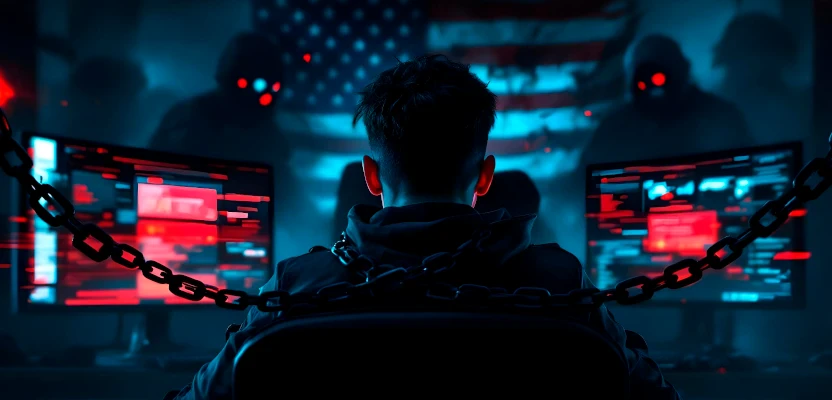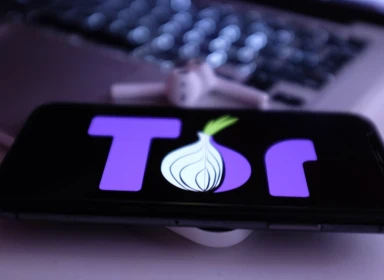
In a world where the internet has become the heartbeat of communication and connection, a young airman named Jack Teixeira shook the pillars of national security through a digital betrayal that continues to reverberate. The shocking tale of how a mere 22-year-old exposed top-secret Pentagon documents on Discord reveals not only a catastrophic lapse in judgment but also an alarming gap in safeguarding sensitive information in the digital age.
A Promising Start, a Catastrophic Turn
Jack Teixeira's journey began with promise. Enlisting in the U.S. Air National Guard in September 2019, he was assigned to the 102nd Intelligence Wing in Massachusetts. His role as a Cyber Defense Operations Journeyman was crucial: he managed and secured classified systems integral to national defense. This position granted him access to top-secret data, a responsibility reserved for trusted and trained individuals.
Despite multiple security briefings and a deep understanding of the risks, Teixeira began systematically betraying that trust. By early 2022, he was stealing and disseminating classified documents, initially transcribing sensitive material by hand and later escalating to printing and sharing the documents themselves. His chosen platform? Discord, a hub for gaming and social discussion, where he found an eager audience.
Discord and the Ego-Driven Leak
The information Teixeira leaked was not minor or obscure. It encompassed vital details about U.S. and NATO operations, insights into international defense strategies, and intelligence on potential threats, such as China’s advancements in military technology. Prosecutors emphasized that the damage inflicted was "exceptionally serious," affecting not only national defense but also the safety of American and allied forces worldwide.
The motive behind these actions was both simple and disturbing: Teixeira sought validation from his online peers. Desperate to impress members of his Discord server, he risked national security for social recognition. Conversations revealed his fascination with appearing informed and influential, and his leaks were a means to boost his digital reputation, reflecting the growing danger of ego-driven actions in our interconnected world.
The Unraveling: Discovery and Arrest
The unraveling of Teixeira’s actions was swift. Aric Toler, an investigator known for his work in digital intelligence, played a pivotal role in exposing the breach. Alongside journalists from The New York Times, Toler traced the leaked documents back to obscure Discord channels, including those discussing video games like Minecraft. Their investigation led them to a closed group called “Thug Shaker Central,” where Teixeira was an active member.
What followed was a race against time. As the FBI closed in, Teixeira frantically tried to cover his tracks. He urged his online associates to delete evidence and even destroyed electronic devices, tossing smashed equipment into dumpsters near his home. However, these desperate measures were insufficient. In April 2023, Teixeira was arrested in a high-profile operation, with armed agents swarming his residence.
A Harsh Reckoning in Court
Teixeira’s trial painted a grim picture. Facing multiple counts of unauthorized possession and dissemination of national defense information, he pleaded guilty. The Boston federal court sentenced him to 15 years in prison, a sobering reminder of the weight of his betrayal. FBI Director Christopher Wray highlighted the case as a cautionary tale, emphasizing the severe consequences of such breaches.
The government’s sentencing memorandum underscored the gravity of Teixeira’s actions. It detailed the enduring impact of his disclosures, which compromised U.S. military operations and damaged trust with international allies. These leaks exposed vulnerabilities, emboldened adversaries, and placed American servicemembers in greater danger, illustrating how one individual’s hubris can endanger an entire nation.
The Fallout: A National Security Nightmare
The ramifications of Teixeira’s leaks are profound and far-reaching. Secretary of the Air Force Frank Kendall described the damage as “immediate and enduring,” noting that the consequences will echo through defense strategies for years to come. The documents leaked included not only military plans but also intelligence assessments, creating vulnerabilities that adversaries could exploit for strategic advantage.
One of the most concerning aspects of the case was the timing. With the war in Ukraine intensifying, the leaked information detailed U.S. aid strategies and tactical insights. These revelations had the potential to alter the conflict's dynamics and endanger Ukrainian forces and their allies. In this digital age, information warfare has become as critical as physical combat, and Teixeira’s actions fed directly into this precarious landscape.
Reflections and Future Precautions
The case of Jack Teixeira serves as a stark warning about the fragility of digital security. As technology advances, the lines between professional duty and personal digital behavior blur, creating new challenges for national security. The ease with which sensitive information can be leaked on platforms like Discord underscores the need for stricter controls and better monitoring of digital activities.
Experts are now calling for a reassessment of how security clearances are granted and maintained. The reliance on young, often digitally immersed individuals poses inherent risks. While Teixeira’s actions were driven by personal motives, they reveal a systemic vulnerability that requires immediate attention. The military and intelligence agencies must adapt to these evolving threats, implementing more robust cybersecurity measures and fostering a culture that prioritizes the gravity of classified information.
Conclusion: A Digital Age Dilemma
Jack Teixeira’s story is more than a tale of one individual’s reckless quest for validation. It symbolizes the broader struggle of protecting national secrets in an era where information flows freely and rapidly. The betrayal of trust he committed has set a precedent that will shape discussions about cybersecurity and intelligence handling for years to come. In the end, it serves as a reminder of the immense responsibility that comes with handling sensitive data and the catastrophic consequences of failing to uphold that duty.





Comments 0